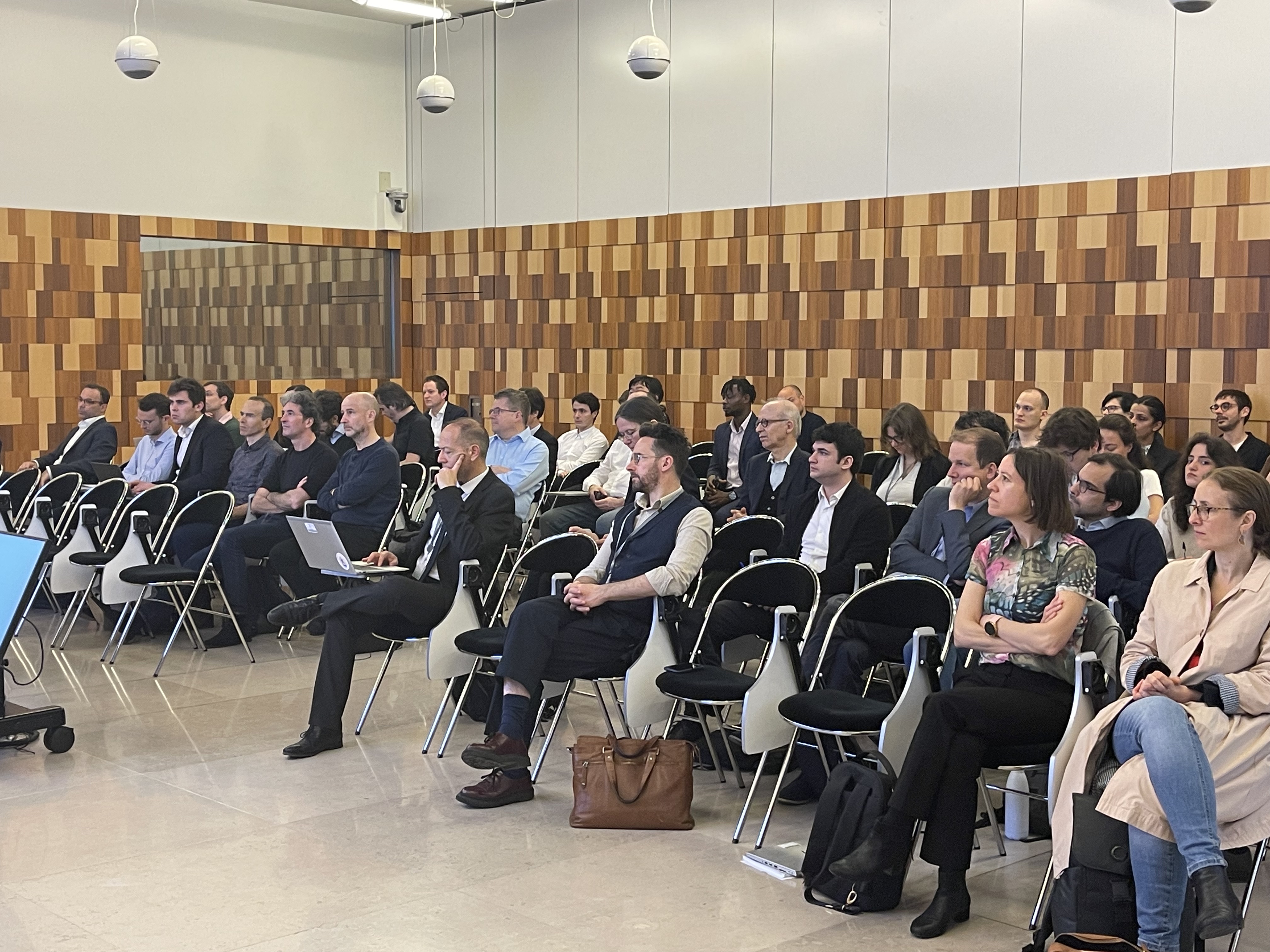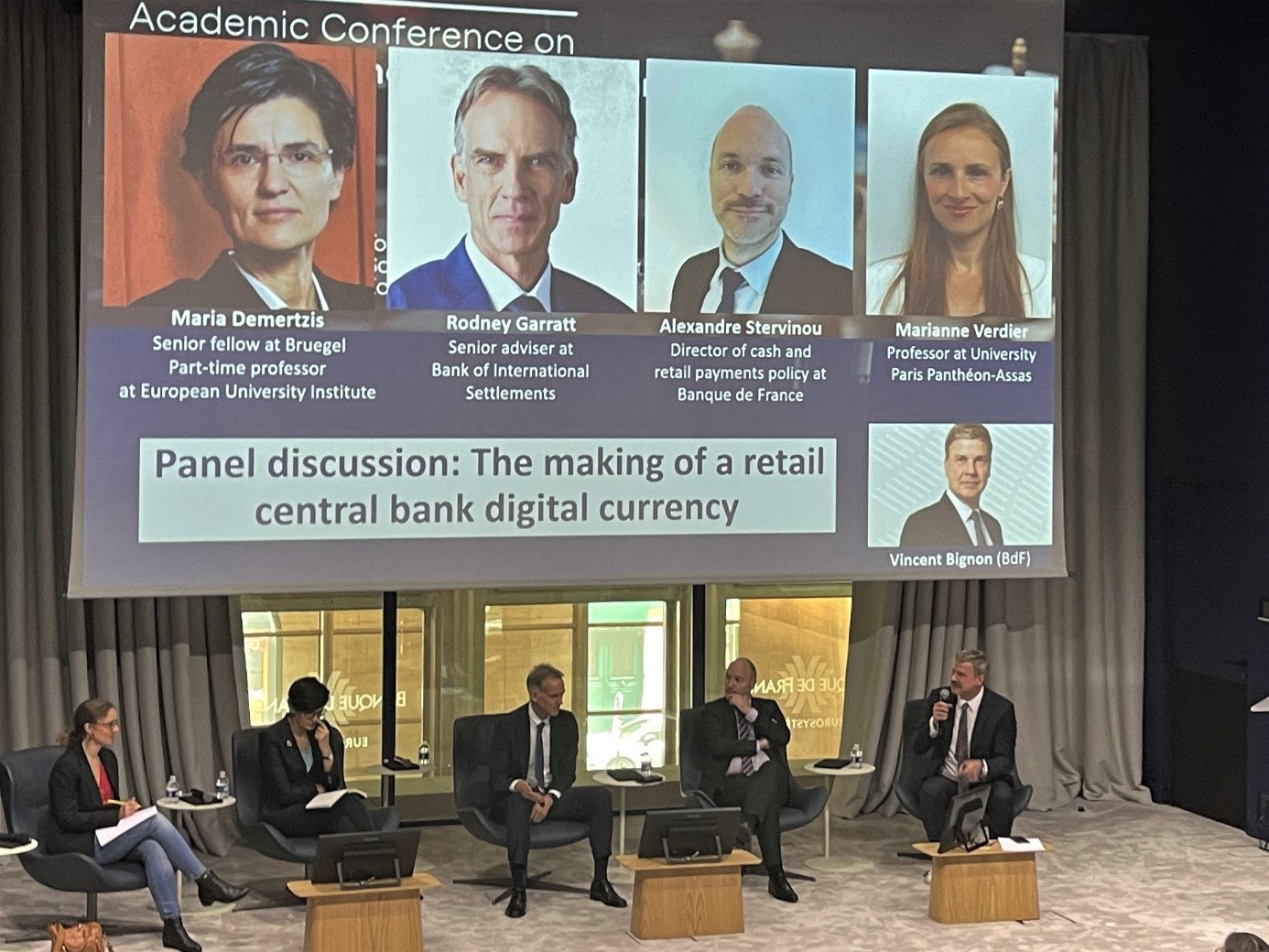What are the consequences for central banks of the digitization of banking and financial activities? What do we know about their impact on fees, competition and financial stability? What are the trapdoors of cryptoactives and stablecoins? What will be the functionalities of the Digital Euro, the digital bill project currently being studied by the Eurosystem? These were the issues addressed at an academic conference attended by some 80 researchers and economists, organized on Tuesday June 4 by the DGSO in collaboration with the DirCom, and in cooperation with the Toulouse School of Economics and the University of Paris Panthéon Assas.
 Deputy Governor Agnès Bénassy-Quéré emphasized in her introductory speech that, at a time when “the digital revolution in banking and finance is underway, as we see in our daily lives, this conference is important for understanding its implications for financial stability and monetary policy”.
Deputy Governor Agnès Bénassy-Quéré emphasized in her introductory speech that, at a time when “the digital revolution in banking and finance is underway, as we see in our daily lives, this conference is important for understanding its implications for financial stability and monetary policy”.
Rodney Garratt, Senior Advisor at the Bank for International Settlements, then discussed the benefits of decentralized information exchange technologies and blockchain for cross-border payments and presented the AGORA project for international monetary exchanges using distributed ledgers, in which the Banque de France is participating on behalf of the Eurosystem.
The various studies presented demonstrated the extent to which research can challenge preconceived ideas and preconceptions about Bitcoin or stablecoins, highlighting both the collusion between Bitcoin miners and the central role of stablecoins in crypto-asset speculation. Other studies provided information on the impact of banking applications on access to credit and bank deposit financing, enabling lessons to be drawn for financial stability.
 It concluded with a panel discussion on the benefits of the digital retail euro for consumers, and its practical implications. Alexandre Stervinou, Director of Payment Studies and Monitoring at the DGMP, presented the principles adopted by the Conseil des Gouverneurs on October 18, 2024. Rodney Garratt presented his acclaimed study on the importance to consumers of anonymity in retail payments. Marianne Verdier presented the way in which private operators set fees for retail payments, and the potential contribution of projects such as the Digital Euro to the pricing of payments by private operators, while Maria Demertzis, an economist at Bruegel, defended the importance, in the current geopolitical context, of public payments projects to guarantee European sovereignty.
It concluded with a panel discussion on the benefits of the digital retail euro for consumers, and its practical implications. Alexandre Stervinou, Director of Payment Studies and Monitoring at the DGMP, presented the principles adopted by the Conseil des Gouverneurs on October 18, 2024. Rodney Garratt presented his acclaimed study on the importance to consumers of anonymity in retail payments. Marianne Verdier presented the way in which private operators set fees for retail payments, and the potential contribution of projects such as the Digital Euro to the pricing of payments by private operators, while Maria Demertzis, an economist at Bruegel, defended the importance, in the current geopolitical context, of public payments projects to guarantee European sovereignty.
A perfect illustration of the added value for the Banque de France of its partnership with the Toulouse School of Economics.
See also: conference page and TSE-Banque de France partnership
